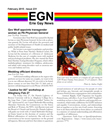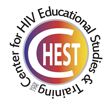CHEST (Center for HIV Educational Studies and Training) (2 Articles with 9,408 total views)
CHEST conducts research to identify and promote strategies that prevent the spread of HIV and improve the lives of people living with HIV. We have been advocating for and working with the LGBT community since 1996.
June, 2017
New CHEST Study Looks At HIV And Other Health Risk Differences Between Rural And Urban Gay And Bisexual Men Across The U
A new paper by Dr. Jeffrey Parsons, Distinguished Professor of Psychology at Hunter College, and his colleagues at the Center for HIV Educational Studies and Training (CHEST; www.chestnyc.org), identified significant differences between rural and urban gay and bisexual men across the United States on a number of mental health and other factors. As part of their ongoing research on syndemics - a term used to describe how synchronized epidemics in marginalized communities (such as the LGBT community) can reinforce and compound the risk for disease, including HIV – Parsons and his team surveyed 1,033 HIV-negative gay and bisexual men from across the U.S. through the One Thousand Strong project. Among gay and bisexual men, the syndemic conditions that most contribute to HIV risk are intimate partner violence, depression, sexual compulsivity, and polydrug use, and all of these conditions were linked with increased HIV transmission risk behavior in the One Thousand Strong cohort.
February, 2015
New CHEST Study Has Major Implications for 'as needed' PrEP Dosing
Slowly but surely, word is spreading about Pre-Exposure Prophylaxis (PrEP), the exciting new strategy for HIV prevention for HIV-negative men and women at risk, principally in the form of the once-daily Truvada pill by Gilead. Current studies of once-daily PrEP dosing find it to be effective, with the iPrEX trial reporting 92% efficacy when taken every day. One of the biggest criticisms of PrEP has been that asking people who consider themselves otherwise healthy to take a pill every day is an unrealistic expectation. Scientists are currently studying if less frequent Truvada dosing is still effective. Earlier this year, for instance, an extension phase of the iPrEx study found that those who took Truvada at least four times a week still avoided infection. More recently, the IPERGAY study has stopped giving placebo treatments ahead of schedule because of the high effectiveness of PrEP taken on an "as needed" schedule. Rather than ask participants to take the pill every day, IPERGAY had participants take two pills up to 24 hours before having sex, one pill in the 24 hours after sex, and an additional pill 48 hours after. This dosing may be less burdensome than daily pill taking, but it demands further behavioral research on how often and how accurately individuals can predict when they will have sex, and then adhere to the guidelines of their regimen appropriately. Other less-than-daily dosing strategies are also currently being tested, including the ADAPT trial.








